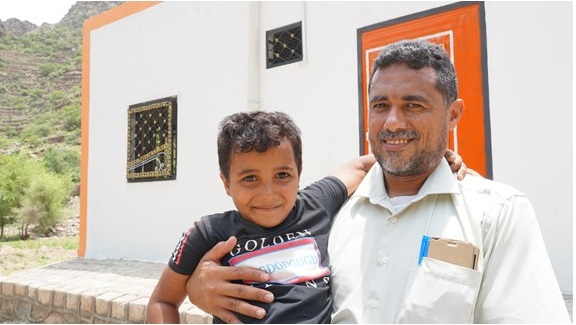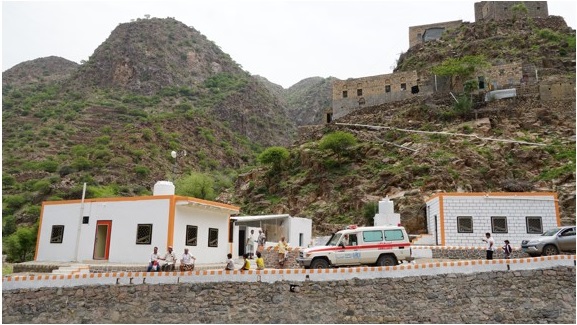Yemen has one of the world’s highest rates of maternal mortality. According to the United Nations Children’s Fund (UNICEF), one woman and six newborns die every two hours in Yemen due to complications during pregnancy or childbirth. Even before the spread of COVID-19, nearly half of all health facilities across the country were still functioning. Only 20 percent of the functioning health facilities provide maternal and child health services. Moreover, 2.1 million Yemeni children and 1.2 million pregnant and lactating mothers suffer from either moderate or severe malnutrition.
Anees Mohammed Nasser, 42 years old, is a passionate man who radiates enthusiasm and positivity. He works as a school principal in Al Maqatirah district of Lahj governorate.
“I still remember that day as if it happened yesterday,” says Anees with a sad sigh. “Four months ago, a beautiful pregnant mother from Barkan village of Al-Maqatara district was placed in a blanket and carried by the villagers to the nearest health centre, which is fifteen kilometres away from the village. The road was unpaved and rugged and I recall that day the road was blocked due to floods. The woman suffered from both the complications and the road. Halfway there, she gave birth to her baby, only a couple of hours before reaching the health centre. Without proper healthcare, she suffered a postpartum hemorrhage – heavy bleeding after giving birth. Tragically, both the mother and her baby died a few minutes after arriving at the health centre.”

